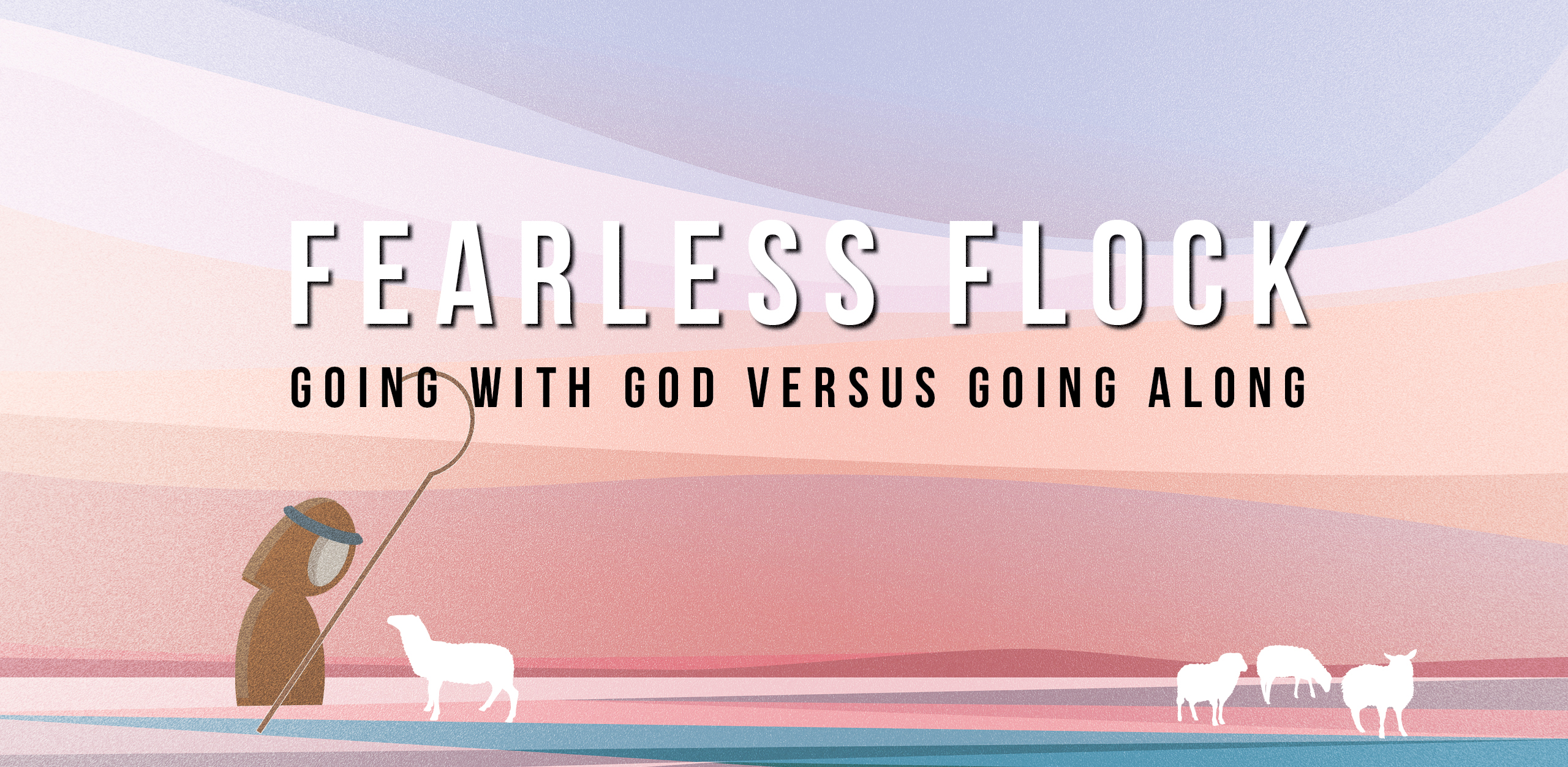
Series Companion for Fearless Flock
For your convenience, this material is offered in printer-friendly PDF format.
Introduction
We don’t think very highly of sheep. In fact, we use the term “sheeple” as an insult, referring to people who are just caught up in the crowds, can’t think for themselves, and are easily fooled. But the reality is that we are all caught up in different kinds of crowds, voices, demands, and impulses. People, ideas, and tasks are constantly clamoring for our attention. And often these things that seem like they have our best interests in mind will lead us astray. But this spring, we are going to consider what it means to be a part of a different kind of flock. Psalm 23 is one of the most beloved parts of the Bible. In it, we see a vision of life that is based on our dependence upon God, a good shepherd. And as we walk with this shepherd, we will find peace, provision, courage, blessing, and love. So join us as we learn how to be sheep, not “sheeple”!